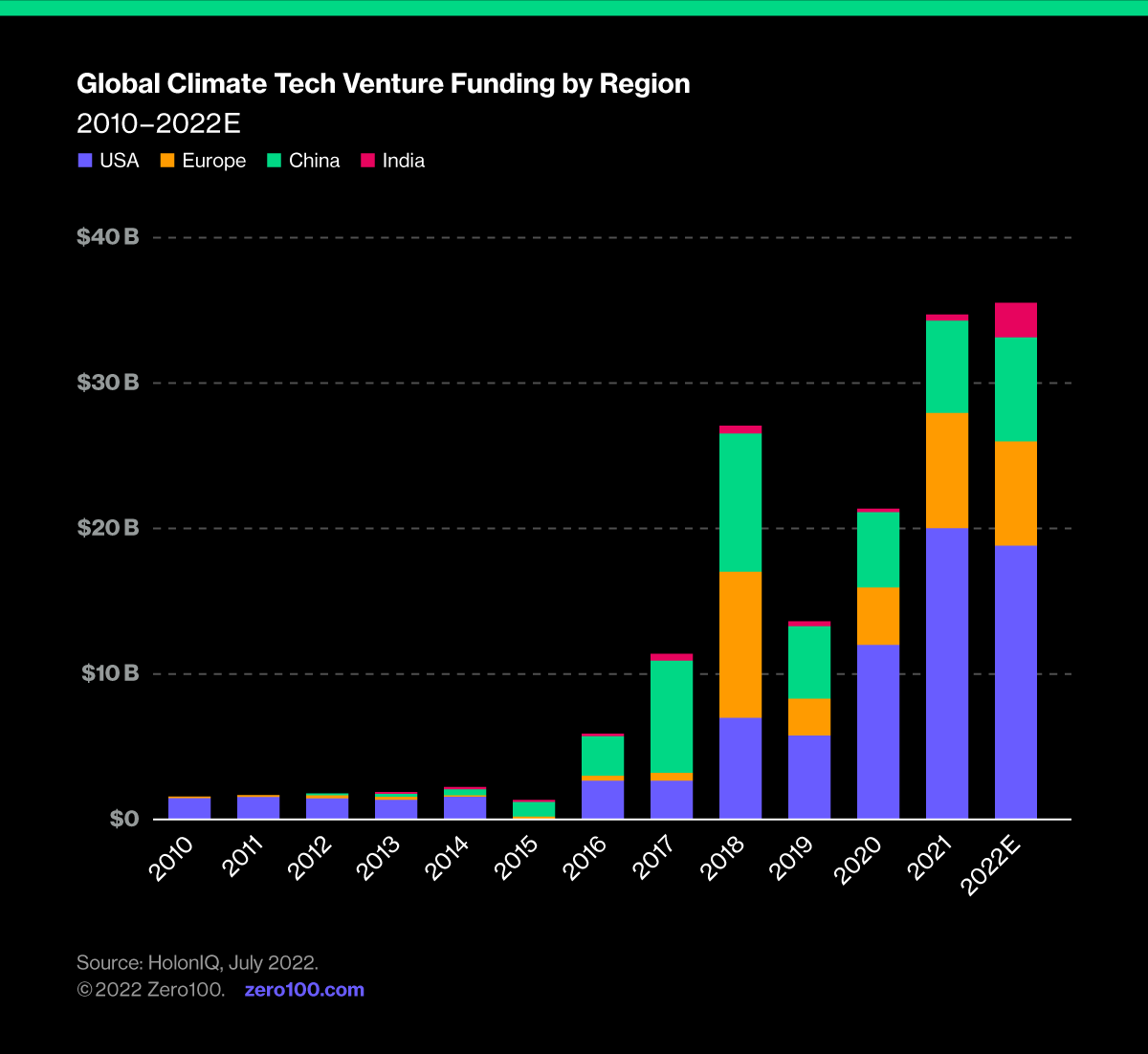
Joro: Harnessing Caring Consumers to Decarbonize Supply Chains
Carbon tech set a venture funding record in 2022. Joro, may signify the start of bringing not only the power of regulators and investors to decarbonize supply chains, but the far greater power of customers.
Paper or plastic? A simple question still asked at the checkout counter of many supermarkets, and the tip of a massive iceberg of complex accounting for how everyday shopping decisions affect climate change. Carbon tech—which set a venture funding record in 2022—is here to help us make those decisions.

One notable player in this space is Joro, an app that helps people shop sustainably with a deceptively simple tracker that analyzes their credit card purchases over time and estimates their personal carbon footprint. The idea is not to solve the mega-problem of accurately labeling carbon intensity on each item at the point of sale, but to help consumers build what Joro calls “carbon intuition” so they can shop intentionally with climate change in mind.
Other players in the carbon tech space include Sylvera, which develops ML based tools to boost the credibility of carbon offsets, Carbon Lighthouse, which provides building owners with a platform to optimize energy usage, and EcoVadis, which provides business sustainability ratings, but what differentiates Joro, is that it focuses on the you – the consumer.
Not Just Regulator Push, But Customer Pull to Zero Carbon
Supply chain leaders are sprinting to get their carbon accounting house in order right now as proposed SEC rules in the US and product labelling rules in the EU loom. Meanwhile, wider societal expectations, especially of bigger brands, that zero-carbon pledges be honored, is forcing most to intensify their efforts to land on an accepted standard for carbon reporting. Despite all this, nothing is crystallizing yet.
Joro's story is important because it may signify the start of bringing not only the power of regulators and investors to bear on the push to decarbonize supply chains, but also the (far greater) power of customers. Joro's “Carbonizer” app includes a series of big public data sets and proprietary algorithms based on the user's actual shopping and lifestyle data to continuously calculate each user's carbon footprint.
Right now, these calculations are rough estimates, but just like Google Maps or Spotify, the more it gets used, the sharper the calculations get. With active users currently growing at 25% compound monthly and a fresh $10M series A round of investment from Sequoia Capital and Jay-Z's Arrive it's not unreasonable to project that Joro could be the start of something big.
For supply chain leaders taking point on measuring and reporting Scope 3 carbon, the opportunity (and threat) is clear in Joro's humble admission of how the algorithms work:
“As we develop our algorithms, Joro will be able to make better and more actionable estimates. For instance, for a clothing purchase, we might distinguish between second-hand and new clothes, or more or less sustainable vendors.”
I'd sure hate to be classified as a “less sustainable” vendor if this thing takes off the way so many other social, e-commerce, or gig-economy platforms have in the past 10 years. And it's not just about Joro. It's about whether, or more likely when, people start making purchase decisions armed with specific data about your product's carbon impact. Glossy sustainability reports won't help much if customers' “carbon intuition” tells them not to buy your brand.
Buying Offsets Lets Customers Vote with Their Dollars
Joros' next big thing is offering its users the ability to buy carbon offsets for as little as $25 per ton on carbon removed. The company uses a highly transparent due diligence approach that assesses carbon offset providers on eleven criteria including verifiability, scalability, ecosystem impact, and cost. It also takes a portfolio approach like actively managed investment funds to allow regular people to buy into programs that are usually only accessible to bigger entities like companies. Joro takes a 17% cut of the offset buy to pay its expenses, which is much higher than the comparable fee charged by money managers, and probably a big reason the investors see VC-caliber return potential here.
The takeaway for supply chain leaders, especially those directly accountable for zero-carbon commitments made by their companies, is that we're beginning to see measurable proof of consumers' willingness to pay for sustainability. Helping people get good at shopping in pursuit of carbon reduction is good. Getting them to put a price on personally saving the planet makes it real. It may be early, but we can finally start to follow the money on carbon rather than just survey people on their intentions.
Sell Your Carbon Truth
The big watch-out for brand owners is to make sure supply chain leads on getting the Scope 3 accounting straight. The lack of industry standards is a threat, but also an opportunity. If brands can work together, maybe we can harness this budding consumer momentum for good.
Critical Reading
SUPPLYCHAINDIVE
UPS, Overstock to Launch Returns Pilot Program
Commentary: In an effort to better understand customer preferences, evaluate their end-to-end shopping experience, and create a more robust reverse logistics business, UPS and Overstock are launching a return program which will make it easier for customers to return products.
#returns #reverselogistics
FORTUNE
Commentary: Bank of America analysts believe that Mexico will be the main beneficiary of the nearshoring efforts taking place across the US: the result of US companies deciding that doing business in China is simply no longer worth the cost.
#nearshoring #mexico
CRUNCHBASE NEWS
Project44 Raises $80M to Tackle The Supply Chain
Commentary: Logistics startup Project44 has worked with 1,200 companies to collect data at ports around the world and merchandise movement – intel which companies can use to predict problems and mitigate risks and delays.
#logistics #data